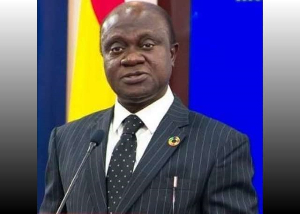Stakeholders at a Hepatitis B and Malaria (HEPMAL) workshop yesterday called for a National Testing Guidelines for the eradication of Hepatitis B and Malaria.
According to them, the guidelines will to ensure that accurate procedures are followed.
This would also help spell out how testing and vaccination should be done, especially to check whether a patient has been given a shot or not
Addressing participants in Accra yesterday, project coordinator for HEPMAL, Dr Kwadwo Asamoah Kusi, said the project, titled “Clinical and Immune pathological Consequences of Chronic HEPB and Plasmodium Falciparum-co infection”, seeks to assess the impact of both hepatitis B and malaria on the liver, as both diseases affect the liver.
“It is also expected to serve as a platform to conduct more research into hepatitis B for more evidence to educate the public on the need to check and know their status and get vaccinated”.
He said the four-year project looks at how two diseases that occur at some point in the liver and the effect on the liver.
Dr Kusi said Hepatitis B is a viral infection; the virus grows in the liver cells and one can have the acute infection, which most people can clear in a short time and that one could have 10 to 15 percent of the people who have it go into the chronic stage for a long time, which can result in liver cancer and sometimes kill the person.
“So this research looks at how both diseases can occur at the same time in the liver and how they react with one another. If you have a chronic hepatitis infection and you have malaria, does it make malaria better or worse or vice versa and does how both diseases behave in the liver make the liver worse of or not?” he said
Dr Kusi said the plan of the project was to recruit people with chronic hepatitis B, people without it, and follow each of them up for one year and see who would get malaria often.
“We have recruited 50 people with hepatitis Band not enough people for those who do not have it. We are in the fifth to sixth month so the first to be recruited have been checked six times to see if they have contracted malaria,” he said.
Professor Abraham Anang, Director of Noguchi Memorial Institute for Medical Research of the University of Ghana, commended European Developing Countries Clinical Trials Partnership (EDCTP) for supporting the project.
He said the country so far had accepted hepatitis B vaccine, adding that the Hepatitis Foundation had been up to educate the public on the need to seek early medical treatment.
”As a country, we have been taken into the use of the hepatitis vaccines and have been able to focus our healthcare personnel to be able to appreciate how hepatitis treatment and management is carried out,” he said
Health News of Friday, 5 March 2021
Source: ghanaiantimes.com.gh
Stakeholders call for hepatitis B, malaria testing guidelines
Entertainment












